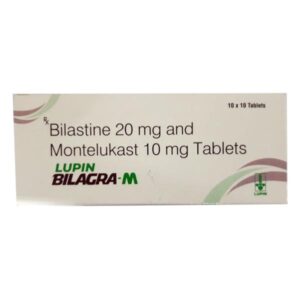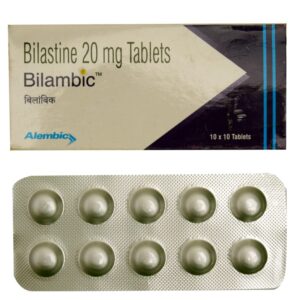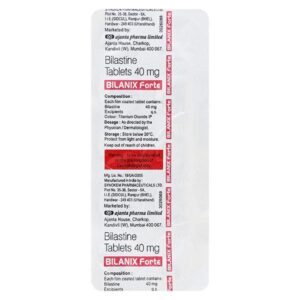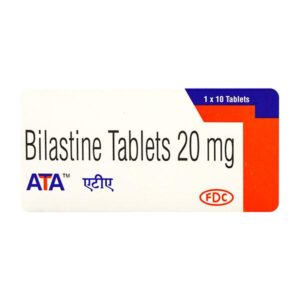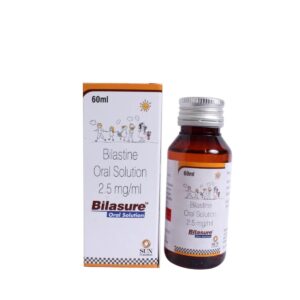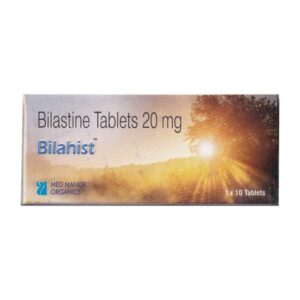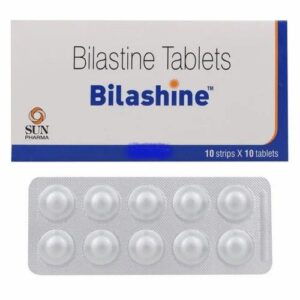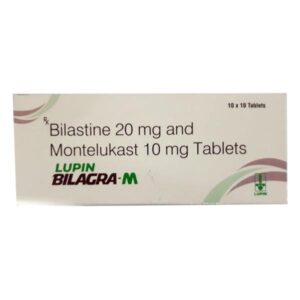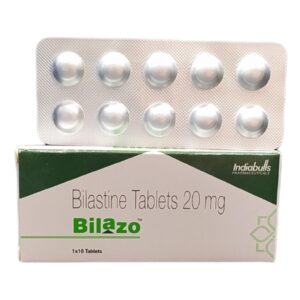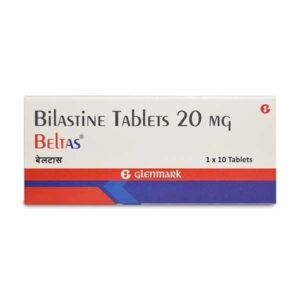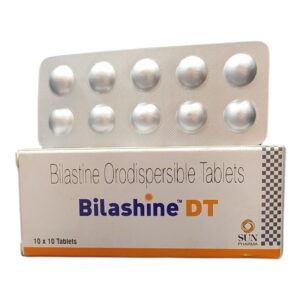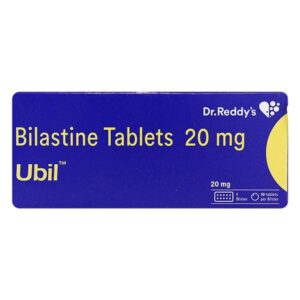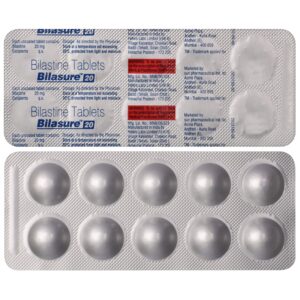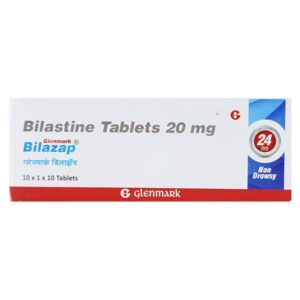BILASTINE
BILASTINE: Bilastine is a second-generation antihistamine drug that is primarily used for the treatment of allergic rhinitis (hay fever) and urticaria (hives). It is available in tablet form and is typically taken orally.
The mechanism of action of bilastine involves the selective blockade of histamine H1 receptors, which helps to alleviate the symptoms associated with allergic reactions. By blocking these receptors, bilastine prevents the release of histamine and reduces the effects it has on the body, such as sneezing, itching, nasal congestion, and hives.
The recommended dose of bilastine for adults and adolescents over 12 years of age is 20 mg once daily. For patients with mild to moderate liver impairment or the elderly, a lower dose of 10 mg may be prescribed. It is important to follow the recommended dosage and not exceed the prescribed amount.
Common side effects of bilastine are mild and usually transient. They may include fatigue, headache, drowsiness, dizziness, dry mouth, and gastrointestinal disturbances such as nausea or diarrhea. These side effects are generally mild and rarely require discontinuation of the medication.
Bilastine is considered to have a favorable side effect profile compared to older antihistamines, as it has a minimal sedative effect and a low potential for interactions with other drugs. However, it is still advised to consult a healthcare professional before taking bilastine, as it may interact with certain medications or be contraindicated in individuals with specific medical conditions.
Overall, bilastine is an effective and well-tolerated antihistamine that provides relief from symptoms associated with allergic rhinitis and urticaria. As with any medication, it is essential to use it as directed and consult a healthcare professional if any concerns or questions arise.

